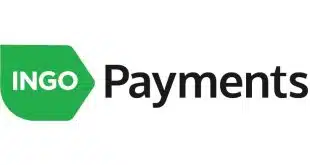It’s time for bankers to stop looking at mobile technology merely as a cost cutter and start using it to make money, said speakers at a retail-banking technology conference on Tuesday.
Banks that add a variety of new services to their mobile offerings ranging from in-store bar-code scanning to expedited payments to gift card issuance can earn fees from consumers as well as merchants, they said. Other new, fee-generating services financial institutions can let customers perform on mobile devices can include account opening, delivery of offers, person-to-person payments, remote deposit capture, credit scores, insurance quotes, and cross-sell opportunities, said Drew Sievers, chief executive of Larkspur, Calif.-based mobile-software vendor mFoundry Inc. and Matthew Wilcox, senior vice president and director of marketing and interactive services at Salt Lake City-based Zions Bank, an mFoundry client.
Sievers said mFoundry is already seeing demand from financial institutions for at least some of these services. “Expedited bill payments we’re seeing requested a lot,” he told the audience at the Bank Administration Institute’s Retail Delivery trade show in Washington, D.C. “Consumers will pay to move a payment faster, and it makes a lot of sense on a mobile phone.” Wilcox estimated banks can earn an average of $20 per payment for expedited service, which lets consumers make last-minute bill payments to avoid late fees, finance charges, or other penalties.
Account-opening is proving to be another popular feature. “We have requests from almost every one of our clients to put this on their platform,” said Sievers. The fee for this service can average $15 per transaction, said Wilcox. Similarly, delivery of offers and rewards for merchants can be lucrative for banks, with the potential of $15 per offer when generated from within a merchant app, Wilcox estimated. “We’re going to do this with every client we’ve got,” said Sievers, who said mFoundry now serves about 800 financial institutions and has about 11 million active users.
Other fee estimates, according to Wilcox, are $6 for each P2P payment, $8 to generate a credit score, $12 per gift card, $15 for each insurance quote, and $7 per referral within a mobile cross-sell program for outside providers. To provide the technical underpinnings for such new services, mFoundry this week introduced a new mobile-banking platform called Fin.X. The new platform includes links to Safeway Stores Inc.’s BlackHawk prepaid network for gift card issuance and Dwolla, a Des Moines, Iowa, startup that lets consumers pay merchants and each other. Other vendors on the system include processor Fidelity National Information Services Inc., ATM maker Diebold Inc., and Micronotes Inc., a provider of cross-sell technology to financial institutions.
Both speakers, however, warned bankers to “decouple” mobile enrollment from online banking. While most banks still limit mobile usage to customers who enroll in online banking, Sievers said this process only drives potential mobile users away. “When I’m kicked into online enrolment when I only want mobile, [the reaction] is like shopping-cart abandonment,” he noted.
Sievers also cautioned the audience not to become enamored of general-purpose, open-loop mobile payments, which he estimated is years away. While mFoundry provided the software for Starbucks Corp.’s wildly popular mobile-payments application, this deployment depends on barcodes rather than near-field communication (NFC) to trigger transactions and is a closed-loop system tied to the coffee chain’s proprietary loyalty card.
NFC, a contactless protocol that lets mobile users perform transactions at the point of sale, has been plagued by delays, merchant reluctance, and business disagreements among banks and wireless networks. Referring to these troubles, Sievers called mobile payments “an exercise in ocean boiling.” Further, general-purpose mobile payments doesn’t generate net new transactions for banks, since it simply replaces a plastic card with a virtual equivalent, he argued. “It’s a form-factor switch,” he said, that may defend existing revenue but doesn’t generate new revenue.
Indeed, in describing the revenue potential in offers and rewards, Sievers said these non-payment media, which NFC-based mobile-payments platforms like Google Wallet and the carrier-led Isis venture have included in their systems, are “the last refuge in mobile payments for somebody who realizes he can’t make money in mobile payments.”







